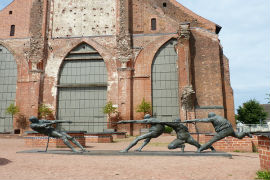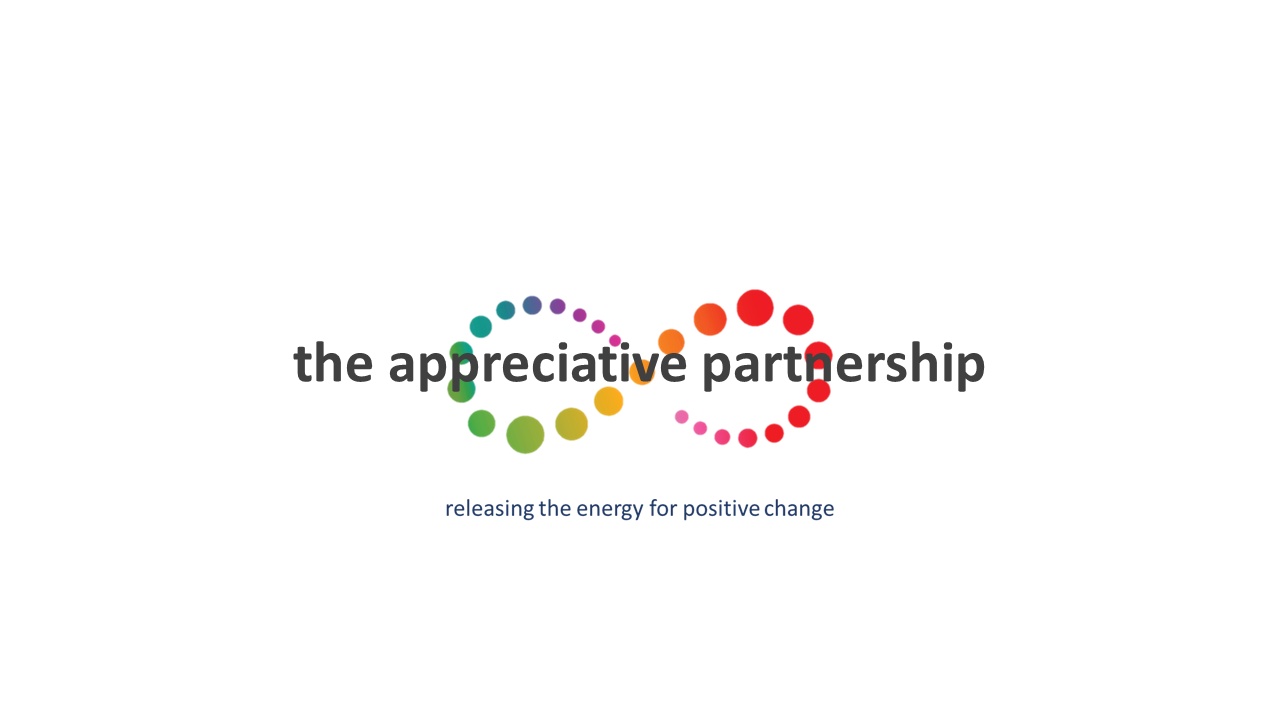stories about our work
Tug of War

Change is a constant feature of the economic, social and business landscape. Yet, adapting to changes in direction, perspective or goal can feel like a tug of war; with people finding it difficult to move forward together as they see the outcome of change as a zero-sum game of winners and losers. The public sector organisation was in the midst of a tug of war as stakeholders, with entrenched positions, grappled with a new directive.
The funding and policy setting parent organisation had issued a far reaching mandate for change. Fulfilment would mean: changes to client groups (the end service user population), reworking the economic model (requirements to develop new commercial strategies and income generation) and a cultural shift (the perspective of the workforce about the nature and outcomes of their work).
Whilst management were charged with making change happen, the workforce union was concerned about the implications for their members, particularly in relation to safety and the management of risk during the transition. The union were prepared to call members out on strike if their concerns were not addressed.
Our brief was to devise and facilitate two ‘one-day summits’ bringing together stakeholders to create a foundation for, and then build, a shared, sustainable operational strategy. And, of course, offset the ‘tug of war’ mind-set.
On each day of the Appreciative Summit exercises were used to enable union leaders and senior managers to recall and share previous experiences of working together toward a positive outcome. Bespoke appreciative exercises were designed to help people articulate and share their vision for success and explore what would inspire them to give their best to achieve this vision. In addition, appreciative identification of their personal values and strengths, as leaders, helped the group to consider how they might leverage these assets to maximise success and assist one another to realise their aspiration.
Finally, these personal and organisational resources were drawn forward into an appreciative innovation exercise to; design a joint strategy for change, set out the priorities for implementation, and identify the established and potential enablers and inhibitors of impact and sustainability.
Delegates commented afterward “you have helped us achieve more, together, in two days than ACAS has ever been able to in the past”.
Virtuous or Viscious Cycle

Quality of life was a key factor in the performance of the public sector organisation. Crucially for the senior team, quality of life issues were assessed through two annual measures; one focused on staff and one focussed on service users. These measures of satisfaction fed into the organisation’s ranking relative to other competitors in their field. Where satisfaction fell below a particular ceiling the organisation was issued targets and a time frame to bring these levels back to the baseline minimum.
In the most recent review the service user measure indicated the organisation was performing weakly, with the report raising concerns about neglect, lack of compassion and care leading to worries about safety and wellbeing. In addition, the staff survey returns were low, indicating disengagement. Strong common themes included low staff morale and dissatisfaction, in particular in the way the organisation demonstrated care and value to the workforce.
In this instance, the CEO had experienced appreciative inquiry before. They knew that complex challenges could be unravelled and solutions found by leveraging the energy generated through appreciative techniques. The brief was to design and deliver a set of appreciative initiatives that would create a virtuous cycle of activity and realise the needed improvements.
Working with the senior team we agreed the complexity of the situation required a phased approach.
- A mini appreciative inquiry (AI) was undertaken to develop insight into the challenge. The AI revealed a mirroring of staff and service user concerns around three key areas; care, negativity and autonomy. It also provided real case study events which became the material for a series of ASK (Appreciative Sharing of Knowledge) groups.
- In the initial set of groups we facilitated appreciative sharing of knowledge around the real case study events.
- The second round of ASK groups focused on the creative generation of solutions and strategies for making the solutions sustainable. Crucially, each member of staff committed to taking one idea forward in their personal daily practice.
The next round of measurement saw improved performance in quality of life and the organisation climb up the competitive rankings. Perhaps as significant, though, was the widespread realisation that staff and service user satisfaction could be mirrors of one another and therefore a mutual indicator of current and future satisfaction.
Under Pressure

Exposure to the right type of pressure can enhance performance, pushing people out of their comfort zone into new and innovative patterns of thinking and achieving. However, prolonged or excessive pressure can begin to warp and ‘deform’ the strengths people rely on. The pressure literally changes them. They begin to think, feel and behave ‘out of character’. As a result, performance declines. This is exactly what the director was observing in her colleagues.
The organisation had been subject to an inspection, following which a number of recommendations had been made. A period of 12 months was given to implement the changes before re-inspection. Many of the recommendations spanned the remit of several departments and could only be achieved by collaborative working.
In the early months, the inspection report had served as a catalyst for senior managers to come together, supporting each other to deliver against targets. However, as the date for re-inspection drew nearer the director noticed silos emerging among the departments and an uncharacteristic culture of blaming others when things fell behind. Her concern was that, if allowed to continue, the required changes would not be delivered, but more important, a deterioration in inter-team relationships would affect future performance.
In discussion with the director, we formulated an intervention that would help the senior managers appreciate how the increasing pressure might be impacting their usual and preferred working style. The bespoke ‘appreciating pressure/performance’ workshop was designed to:
- recognise how the relationship between pressure and performance was working in their circumstance to create a negative spiral of reduced performance,
- identify personal and team based thinking traps and negative spirals of inter-relating,
- teach techniques flip the negative on its head,
- provide resilience techniques and help identify and exploit opportunities and strategies for managing conflict positively.
Equipping people to be more appreciative and to re-orientation to the positive helped this group of managers re-align and strengthen collaborative practices to meet the immediate re-inspection challenge. By providing a set of tools, it also enhanced the capacity in the managers to meet future challenges and opportunities without succumbing to the ‘deforming’ effect of pressure.
Under African Skies

How can a foreign aid agency work with desperately poor people without establishing dependency and learned helplessness? That was the question when we started to work with an American NGO in the deserts of Mauritania, where drought had wiped out the animal stocks of nomads and forced them to become agriculturalists.
We knew that to ask: ”What do you want/need?” would produce an unsustainable shopping list, we also knew that we were dealing with a complex but fragile social structure. So our framing question needed to be focused on their successes “What achievement since you settled here are you most proud of?” Such questions revealed an amazingly rich mix of cultural adaptation – from building a Mosque to establishing a kind of head tax to pay the salary of a primary teacher.
More, it revealed a society where traditional power-distributions were coming under challenge, especially from the women who saw more clearly than the men that the exigencies of the nomadic life made rigid authority structures defensible, but the less insecure life of the farmer made them seem less acceptable.
By visiting each household and listening to what they saw as their achievements, we were able to ask what inhibitors they saw to the wider achievements to which they aspired. How could those inhibitors be reduced? What did the village as a whole need to do to make them less obstructive?
Before we left, the Village Chief arranged for a meeting of the whole community to discuss our findings. Two moments stand out like gold in a plumber’s tool kit. First, a woman from the lowly Fougeron caste dared to ask the Chief about the need for a professional health worker in the village. Such a challenge had never been heard before. It led, to the surprise of some, to a reasoned and respectful debate. Second, the Chief ended the meeting by turning to the representative of the aid agency and saying. “We know where we are going and what we must do to get there. If you want to accompany us on the journey, that is good. If you don’t, we will get there by ourselves.”
Creating Cultural Champions

The organisation was emerging from a dark period of missed targets and poor performance. “We are doing a lot better than we were”, said the CEO, “But it’s like people have forgotten some of the basic elements of our culture. They have advanced on one front, but are losing touch with base camp….Or, to change the metaphor, I sometimes think we are becoming like a Polo, with nothing in the middle, at the heart of the place.”
The challenge, then, was to support and encourage the good work that was going on, but at the same time to recall the whole staff to the fundamental values that should be driving the organisation. True to our own basic philosophy, we wanted the staff, at all levels, to define those fundamental values for themselves: it was not for the CEO or, even less, for us, to spell them out.
We decided to find ten Cultural Leads, selected for their own loyalty to fundamental values, and encourage the CEO to give them his unconditional authority to challenge anyone in the organisation, no matter what their rank, whom they saw as jeopardising the deep values of the organisation. But first we had to enable them to distil those values. What exactly was it that made this organisation distinctive in its field? What were the hallmarks of excellence?
The obvious opening question of our first session together, then, was: When is this place at its best? We explored that at length – and then changed the focus: when is this section, this department….at its best? When do we know we are really doing well? What does excellence feel like? By asking these sorts of questions, it was easy to develop a range of qualities that contributed to the excellence of the organisation. Those needed refining and sharpening. As we did so, we knew what we were trying to promote. And, more operationally, what the Culture Leads would need to protect by challenging those who put those qualities in jeopardy by their own work habits.
We trained the Culture Leads how to challenge peers and superiors by the use of appreciative preambles. “I know you are brilliant at X and Y but when you do Z, don’t you think you are giving out the wrong signals….?”
We developed a number of indicators which would allow senior managers to assess the effectiveness of this programme. Within a month, they had come back and asked us to roll it out in all their equivalent establishments.
Predictive Dashboard

Cars have a dashboard. A small set of instruments selected to provide the driver with key information about the car’s performance. Some of the instruments, such as the mileometer, tell the driver what has happened – miles travelled. The speedometer indicates what is happening now. The fuel gauge provides a read out of what the car can be expected to achieve. Past, Present and Future.
Organisations these days are awash with data. Figures that monitor the organisation’s progress. But, how many are simply focussing on what has already happened? What information is used to predict what is going to happen? It was these sorts of questions that led an already highly successful UK luxury goods retailer to re-imagine it’s dashboard of KPIs.
We were tasked by the senior executive team to facilitate the creation of a dashboard that would provide early warning of fluctuation in actions and behaviours that could lead to dips in performance on factors indicative of success. The senior team had their ideas but wanted to build the ‘scorecard’ from the ground up.
Working together with the internal team, we designed and ran a series of ASK (Appreciative Sharing of Knowledge) groups. These in-depth sessions included people from all departments and levels of seniority. This was key to the inquiry into ‘what really matters’, grounding it in day to day experiences.
Critically the question posed to the groups was not “what KPIs should we use?” In keeping with appreciative principles, the question was re-framed to invite a broader, positive line of thinking. “What are the things we do that ensure the success of the business?” With a follow ups questions such as “What inhibits those things from happening, all the time, everywhere?”
The positively framed, appreciative and highly inclusive approach generated three types of measures (i) the predictable lagging metrics (eg sales, customer satisfaction) (ii) a whole raft of leading metrics (eg. staffing levels, training) and unexpectedly (iii) measures of culture and whether the organisation’s values and behaviours were being lived.
Pulling Together

Engaging people in new ways of working can be a real challenge, particular when groups with different organisational cultures are forced together. Even if there is general agreement change is necessary, individuals or teams don’t always agree that change should apply to them. Some disengage, others obstruct.
Recent years had seen the international parent brand acquire several smaller UK companies. This had created a new entity for the leading hearing care provider. Managers were grappling with inherited working practices and diverse cultures. A key issue was a marked difference in sales approach. Many of the audiologist were ‘old school’ sales people out of step with the inclusive consultative approaches clients now valued.
Senior management’s aim was for everyone to align with a customer-focused approach that delivered sales growth but not at the expense of customer advocacy and loyalty. However, rather than dictate new working practices it was agreed that an inclusive, collaborative approach would create greater ownership.
Working with the executive project group we convened a series of regional ASK, or Appreciative Sharing of Knowledge, sessions. In these ASK sessions we worked with audiologists from across the business, helping to draw out the principles and process elements of great customer service. Key to the effectiveness of the sessions was the framing of questions in terms of personal best. “When you are delivering great customer service, what is going on?” And barriers/inhibitors to excellent performance “What gets in the way of that happening all the time?” The appreciative, collaborative approach enabled the sales team to share their views about what matters most, what excellent care looked like and what needed to change to make that a reality. They were co-creating the solution and aligning themselves.
In parallel we sat down with customers and invited them to tell us about their experiences of the hearing care they had received. These appreciative interviews uncovered the values that needed to underpin service delivery. The result was many compelling stories of empathy, consideration and practical actions. The insight helped to embed the idea of ‘service’ as a client relationship.
Working with the executive project group both strands of inquiry enabled the re-design of the customer service process and the supporting consultation materials.
Measuring What Matters

A team from a sport’s national governing body were delivering a programme to young people with physical and learning disabilities at several schools and colleges across the county. The usual attendance metrics were being applied to assess the return on investment. However the programme leader was keen to go beyond the standard measures to explore the broader positive impacts on the young peoples’ well-being.
Early in our conversations it became apparent that the limited communication skills of most of the young people would not allow full participation in any standard research design. Working together with the delivery team an appreciative approach was designed to gather stories about the young people experiences from teachers, coaches and the young people. It also incorporated a significant amount of ethnographic work with our team observing many delivery sessions.
We also gathered feedback on the programme itself from coaches and staff – “What had it been like to deliver such an innovative programme?” “What had worked well and what would the team do differently?” From these accounts, we were able to provide key learnings about designing and delivering sports programmes for people with disabilities.
It was important to ground the appreciative interviews and observations in a well-being framework. We used the positive psychology PERMA model of flourishing to look for evidence of behavioural and skills development in areas of; Positivity, Engagement, Relationship building, Meaning making/Purpose and Accomplishment.
The impact study report provided a wealth of qualitative data, evidencing the physical, social, cognitive and behavioural skills outcomes the programme was delivering. Perhaps most interesting was the impact the programme had had on the young peoples’ beliefs about themselves. That as a disabled young person sport could be a fun part of their lives.

contact
info@theappreciativepartnership.com
